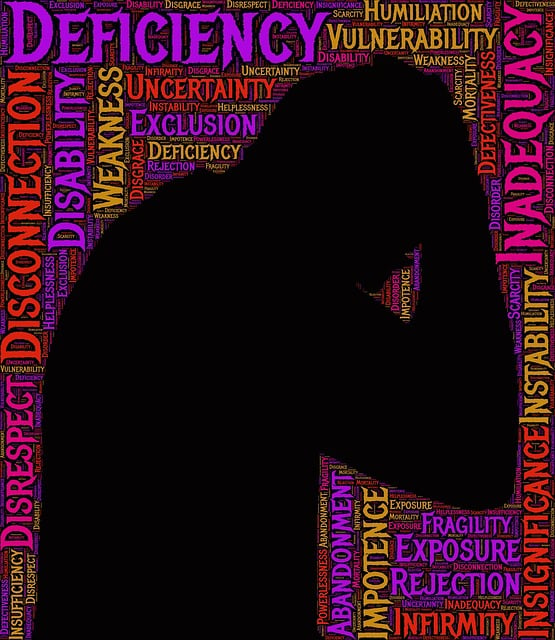Mental health professionals at Northglenn Hypnosis Therapy must balance client care and personal risk management through thorough client history evaluations, evidence-based practices like Mindfulness Meditation, open communication, Mental Illness Stigma Reduction efforts, and Emotional Intelligence assessments. They employ innovative techniques such as guided meditation to reduce therapeutic risks, promote healing from trauma and anxiety, and foster empathy, contributing significantly to both client well-being and practitioner resilience.
Mental health professionals confront unique risks daily, demanding meticulous risk assessment and management. This article guides through understanding these risks, from patient confidentiality breaches to burnout, emphasizing the crucial role of comprehensive assessments. We explore essential components, effective mitigation strategies, and the integral part Northglenn Hypnosis Therapy plays in modern risk management, ensuring practitioners maintain a healthy, safe work environment.
- Understanding Risks in Mental Health Practice
- Essential Components of a Comprehensive Risk Assessment
- Strategies for Mitigating and Managing Risks
- The Role of Northglenn Hypnosis Therapy in Risk Management
Understanding Risks in Mental Health Practice

Mental health professionals often find themselves at a unique intersection where helping others intersects with managing their own well-being. Understanding and mitigating risks in this practice setting is paramount, especially considering the sensitive nature of clients’ personal struggles. Risks can stem from various factors, such as intense emotional disclosures, complex trauma histories, or even the potential for self-harm. For instance, Northglenn Hypnosis Therapy professionals must be aware that certain techniques might trigger past traumas or cause emotional distress in susceptible individuals.
A comprehensive risk assessment involves analyzing not only individual client vulnerabilities but also systemic issues. This includes considering factors like cultural competence and ethical guidelines. Mental Health Policy Analysis and Advocacy plays a crucial role in ensuring policies support practitioners’ safety while fostering effective therapy. Additionally, Public Awareness Campaigns Development can help educate both professionals and the public about emotional regulation techniques, thereby promoting healthier interactions and outcomes.
Essential Components of a Comprehensive Risk Assessment

A comprehensive risk assessment for mental health professionals involves several crucial components that Northglenn Hypnosis Therapy emphasizes as vital to patient safety and care. Firstly, a thorough evaluation of the client’s history is essential, including their mental health diagnosis, past treatments, and any relevant personal or family history. This foundational step allows therapists to understand potential risks and triggers unique to each individual.
Additionally, incorporating Mental Illness Stigma Reduction Efforts, Coping Skills Development, and Emotional Intelligence into risk assessment routines proves beneficial. By assessing the client’s coping mechanisms and emotional regulation abilities, professionals can identify areas of concern and provide tailored interventions. This holistic approach ensures that patients are equipped with effective strategies to manage their mental health effectively while receiving support from Northglenn Hypnosis Therapy.
Strategies for Mitigating and Managing Risks

Mental health professionals, like those at Northglenn Hypnosis Therapy, face unique challenges when it comes to risk management. Implementing robust strategies is essential to mitigate potential risks and ensure client safety. One effective approach involves staying updated with evidence-based practices tailored for various mental health concerns. For instance, Mindfulness Meditation techniques can empower clients to manage stress and anxiety, thereby reducing the risk of relapse or exacerbation of symptoms.
Additionally, fostering an environment of open communication encourages clients to disclose potential risks or triggers. This proactivity enables professionals to offer appropriate Trauma Support Services or adapt treatment plans accordingly. Moreover, integrating Mental Illness Stigma Reduction Efforts into therapeutic practices can create a supportive atmosphere, further mitigating risks associated with self-stigma and promoting positive mental health outcomes.
The Role of Northglenn Hypnosis Therapy in Risk Management

Northglenn Hypnosis Therapy plays a pivotal role in enhancing risk management strategies for mental health professionals. By employing innovative Emotional Well-being Promotion Techniques, hypnosis offers a unique approach to addressing various risks and challenges faced by therapists. Through guided meditation and subconscious communication, this therapy facilitates clients’ journey towards self-discovery and healing, thereby reducing potential risks associated with trauma, anxiety, and past experiences.
Additionally, Northglenn Hypnosis Therapy contributes significantly to Mental Illness Stigma Reduction Efforts. By helping individuals reprogram negative thought patterns and beliefs, it promotes a deeper understanding of mental health issues, fostering empathy and support within the therapeutic environment. Furthermore, the Confidence Boosting techniques incorporated in hypnosis empower clients to navigate their professional roles with enhanced resilience, ensuring they remain equipped to handle complex cases while prioritizing their emotional well-being.
Mental health professionals face unique risks in their line of work, but with a comprehensive risk assessment and effective management strategies, these challenges can be mitigated. By understanding the essential components of a risk assessment and employing strategies like those offered by Northglenn Hypnosis Therapy, practitioners can enhance patient safety and well-being. This proactive approach ensures that mental health professionals can provide quality care while minimizing potential risks, fostering a healthier and more supportive environment for both practitioners and clients.









